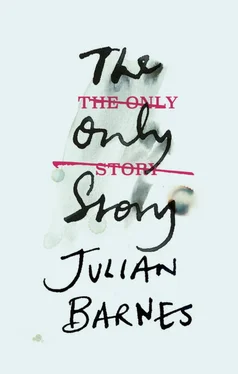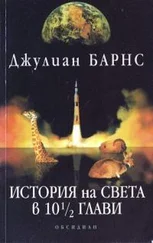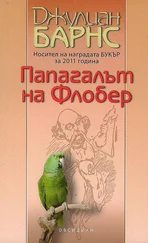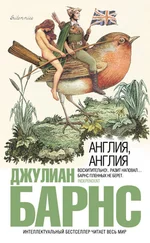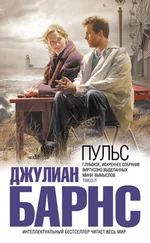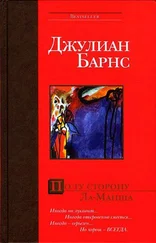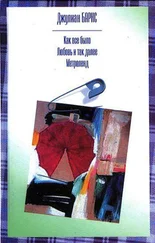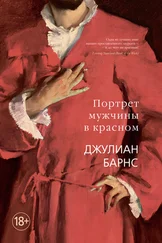All I can tell you is that it was – by the modern speed of things – a long time before we first kissed, and a long time after that before we first went to bed together. And that between the kissing and the bedding I drove her up to London to buy some contraception. For her, not me. We went to John Bell & Croyden in Wigmore Street; I parked round the corner while she went in. She returned with a brown, unbranded bag containing a Dutch cap and some contraceptive jelly.
‘I wonder if there’s a book of instructions,’ she says lightly. ‘I’m a bit out of practice with all this.’
In my mood – a kind of sombre excitement – I’m momentarily unsure if she’s referring to sex, or to putting in the cap.
‘I’ll be there to help,’ I say, thinking that this covers both interpretations.
‘Paul,’ she says, ‘there are some things it’s better for a man not to see. Or to think about.’
‘OK.’ This definitely means the second option.
‘Where will you keep it?’ I ask, imagining the consequences of its discovery.
‘Oh, somewhere-somewhere,’ she replies. None of my business, then.
‘Don’t expect too much of me, Casey,’ she goes on rapidly. ‘Casey. That’s K.C. King’s Cross. You won’t be a crosspatch, will you? You won’t get all ratty and shirty with me, will you?’
I lean across and kiss her, in front of whatever interested pedestrians Wimpole Street contains.
I know already that she and her husband have separate beds, indeed separate rooms, and their marriage has been unconsummated – or rather, sex-free – for almost twenty years; but I haven’t pressed her for reasons or particulars. On the one hand, I am deeply curious about almost everybody’s sex-life, past, present and future. On the other, I don’t fancy the distraction of other images in my head when I am with her.
I am surprised that she needs contraception, that at forty-eight she is still having periods, and that what she refers to as The Dreaded has not yet arrived. But I am rather proud that it hasn’t. This is nothing to do with the possibility that she might get pregnant – nothing could be further from my thoughts or desires; rather it seems a confirmation of her womanliness. I was going to say girlishness; and perhaps that’s more what I mean. Yes, she is older; yes, she knows more about the world. But in terms of – what shall I call it? the age of her spirit, perhaps – we aren’t that far apart.
‘I didn’t know you smoked,’ I say.
‘Oh, just the one, occasionally. To keep Joan company. Or I go out into the garden. Do you disapprove terribly?’
‘No, it just came as a surprise. I don’t disapprove. I just think—’
‘It’s stupid. Yes it is. I just take one of his when I’m fed up. Have you noticed the way he smokes? He lights up and puffs away as if his life depends upon it, and then, when he’s halfway through, he stubs it out in disgust. And that disgust lasts until he lights up the next one. About five minutes later.’
Yes, I have noticed, but I let it go.
‘Still, it’s his drinking that’s more annoying.’
‘But you don’t?’
‘I hate the stuff. Just a glass of sweet sherry at Christmas, so as not to be accused of being a spoilsport. But it changes people. And not for the better.’
I agree. I have no interest in alcohol, or in people getting ‘merry’, or ‘whistled’, or ‘half seas over’ and all the other words and phrases which make them feel better about themselves.
And Mr E.P. was no exemplar of the virtues of drinking. While waiting for his dinner, he would sit at the table surrounded by what Susan called ‘his flagons and his gallons’, pouring from them into his pint mug with an increasingly unsteady hand. In front of him was another mug, stuffed with spring onions, on which he would munch. Then, after a while, he would belch quietly, covering his mouth in a pseudo-genteel manner. As a consequence, I have loathed spring onions for most of my life. And never thought much of beer either.
‘You know, I was thinking the other day that I haven’t seen his eyes for years. Not really. Not for years and years. Isn’t that strange? They’re always hidden behind his glasses. And of course I’m never there when he takes them off at night. Not that I want to see them especially. I’ve seen enough of them. I expect it’s the same for a lot of women.’
This is how she tells me about herself, in oblique observations which don’t require a response. Sometimes, one leads on to another; sometimes, she lets drop a single statement, as if clueing me in to life.
‘The thing you have to understand, Paul, is that we’re a played-out generation.’
I laugh. My parents’ generation don’t seem at all played out to me: they still have all the power and money and self-assurance. I wish they were played out. Instead, they seem a major obstacle to my growing up. What’s that term they use in hospitals? Yes, bed-blockers. They were spiritual bed-blockers.
I ask Susan to explain.
‘We went through the war,’ she says. ‘It took a lot out of us. We aren’t much good for anything any more. It’s time your lot took charge. Look at our politicians.’
‘You aren’t suggesting I go into politics?’ I am incredulous. I despise politicians, who all strike me as self-important creeps and smoothies. Not that I’ve ever met a politician, of course.
‘It’s exactly because people like you don’t go into politics that we’re in the mess we are,’ Susan insists.
Again, I am baffled. I’m not even sure who ‘people like me’ might be. For my school and university friends, it seemed like a badge of honour not to be interested in all the matters which politicians endlessly discussed. And then their grand anxieties – the Soviet threat, the End of Empire, tax rates, death duties, the housing crisis, trade union power – would be endlessly regurgitated at the family hearth.
My parents enjoyed television sit-coms, but were made uneasy by satire. You couldn’t buy Private Eye in the Village, but I would bring it back from university and leave it provocatively around the house. I remember one issue whose cover had a floppy 33 rpm disc loosely attached to it. Peeling off the record revealed the photo of a man sitting on the lavatory, trousers and pants round his ankles, shirt-tails keeping him decent. On to the neck of this anonymous squatter was montaged the head of the Prime Minister, Sir Alec Douglas-Home, with a bubble coming out of his mouth saying, ‘Put that record back at once!’ I found it supremely funny, and showed it to my mother; she judged it stupid and puerile. Then I showed it to Susan, who was overcome with laughter. So that was everything decided, in one go: me, my mother, Susan and politics.
She laughs at life, this is part of her essence. And no one else in her played-out generation does the same. She laughs at what I laugh at. She also laughs at hitting me on the head with a tennis ball; at the idea of having sherry with my parents; she laughs at her husband, just as she does when crashing the gears of the Austin shooting brake. Naturally, I assume that she laughs at life because she has seen a great deal of it, and understands it. ‘By the way,’ I say, ‘What’s “whatski”?’
‘What do you mean, “What’s whatski?”’
‘I mean, what’s “Whatski”?’
‘Oh, do you mean, “Whatski’s whatski”?’
‘If you like.’
‘It’s what Russian spies say to one another, silly,’ she replies.
The first time we were together – sexually, I mean – we each told the necessary lies, then drove across to the middle of Hampshire and found two rooms in a hotel.
As we stand looking down at an acreage of magenta candlewick bedspread, she says,
Читать дальше
